Taiwan Tech observes the sustainable development and regeneration capabilities of Mie Prefecture in Japan, and trains students to integrate social responsibility issues into education.
Taiwan Tech's Teacher Education Center is carrying out projects: "I - Villages: Mobility for Change, Reconstructing the Power of Urban and Rural Cooperation" and the "2022 Ministry of Education Subsidy for Teacher Education Institutions to Conduct Overseas Educational Internships and International Schweitzer programs". They are opening up spots for students from other universities, providing teacher trainees from all over Taiwan with opportunities. Therefore, the project members include teacher trainees from multiple schools such as Taiwan Tech, National Chengchi University, National Yang Ming Chiao Tung University, National Chung Hsing University, and National Taipei University of Technology, as well as graduate students from the Graduate Institute of Digital Learning and Education at Taiwan Tech. Together, they visited Mie Prefecture in central Japan for a field trip and conducted in-depth observations at Tsuda Academy in Kuwana City. Through this experience, they not only witnessed the different educational cultures between Japan and Taiwan but also discovered the diverse attributes and characteristics of students and teachers in teaching, broadening their international perspectives and educational horizons.
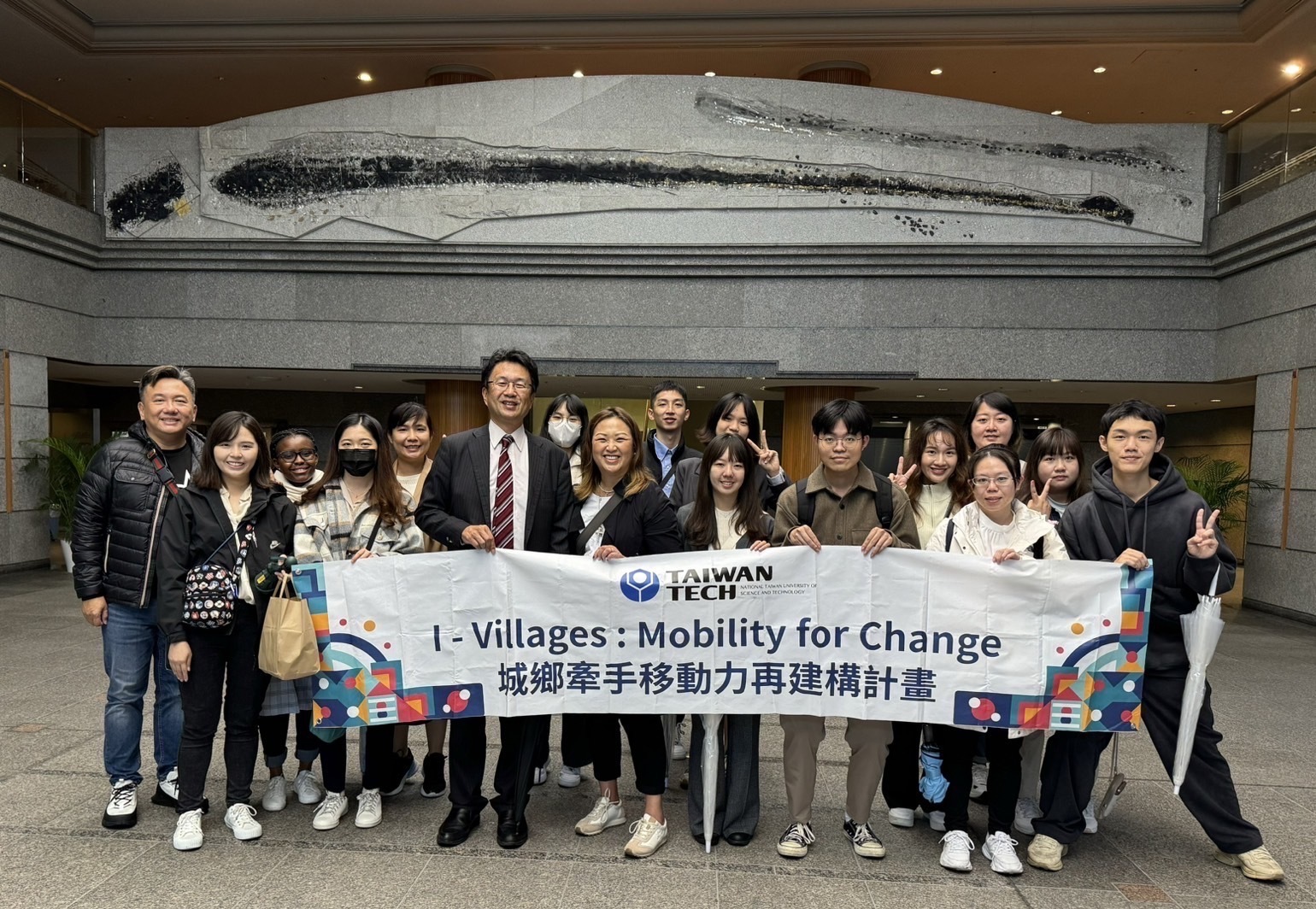
A visit to the Mie Prefecture Council and a group photo with Mie Prefecture Council Members.
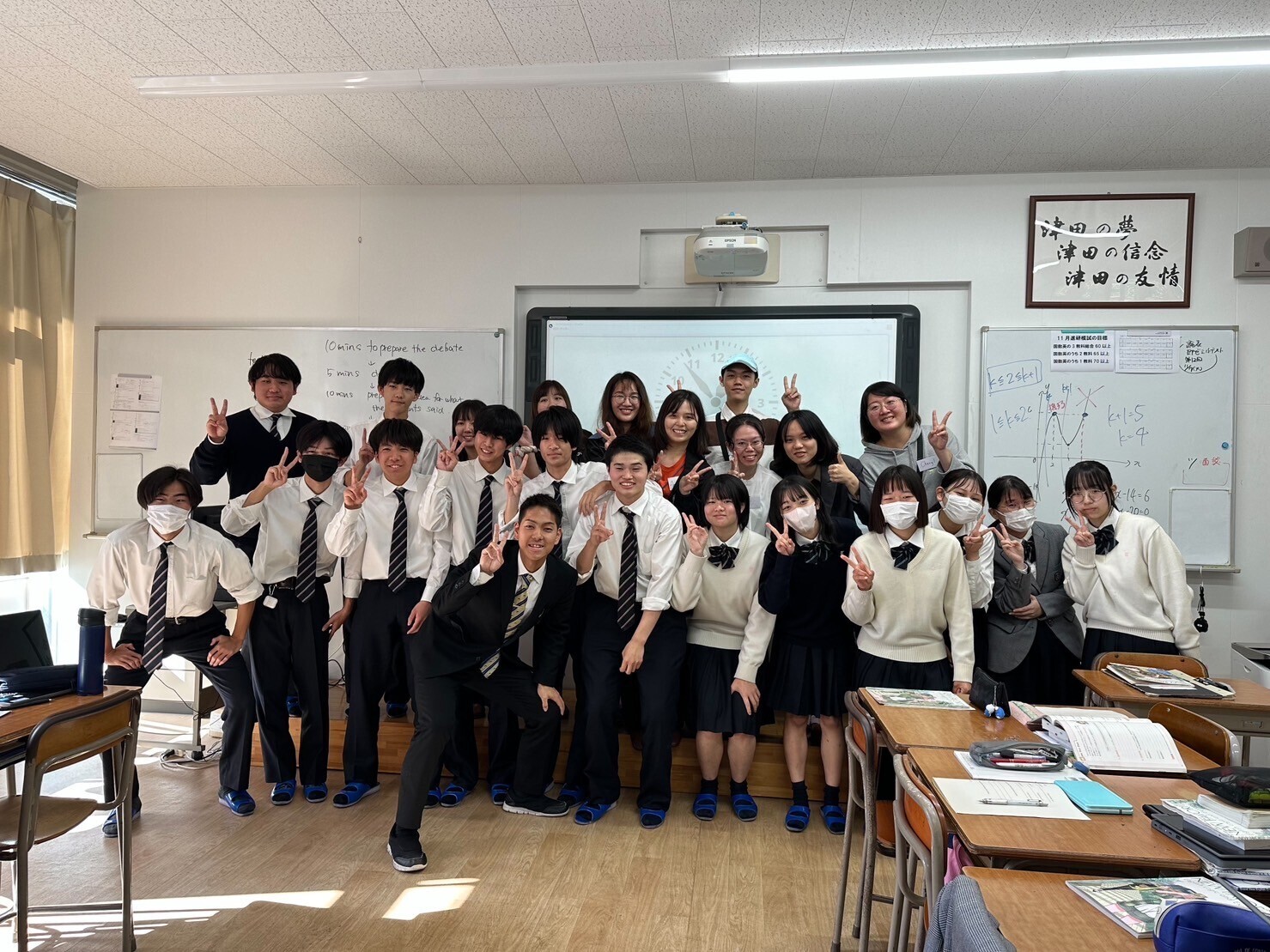
During the teaching observation (class observation content: first-year high school mathematics class at Tsuda Academy).
Professor Cathy Weng from the Graduate Institute of Digital Learning and Education at Taiwan Tech emphasized that the core value of exchange lies in learning from each other's talents. She hopes that through this visit, students can learn from each other's strengths, think about the shortcomings of both sides, and strive towards a better direction together.
The visit to Tsuda Academy in Kuwana City was a valuable experience. Tsuda Academy is a complete middle school in Japan, covering kindergarten to high school, and is located on a mountain away from the hustle and bustle of the city. Tsuda Academy opened its classroom doors for the team to conduct a two-week observation, which included interactions between teachers and students, ranging from English classes to physical education classes, school administrative systems, outdoor education, etc. This in-depth exploration of the operational model of Japanese schools provided an invaluable and rare experience.
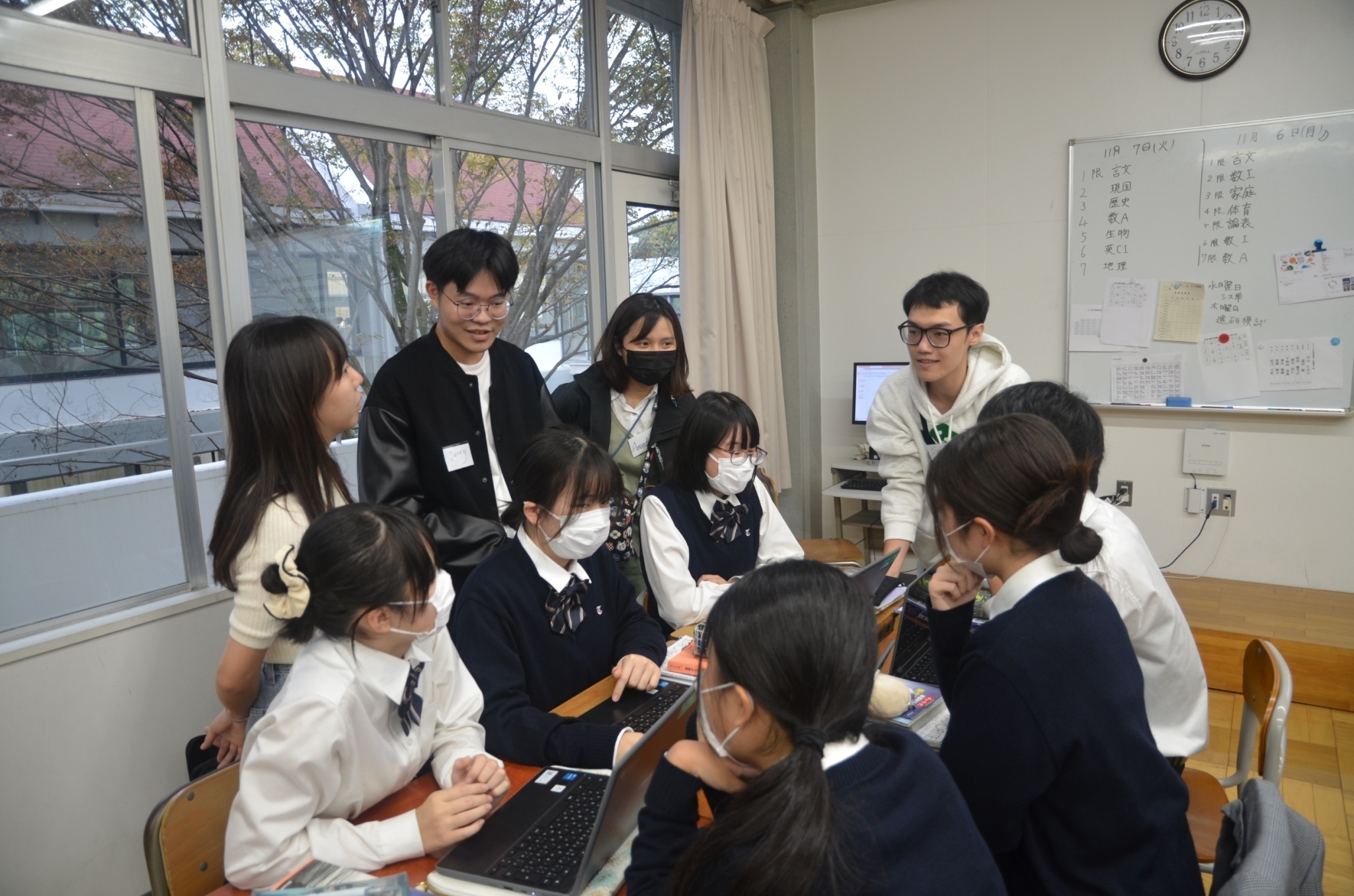
Joining classroom discussions for cultural exchange.
Team members were impressed by the focus and seriousness of Japanese students during class discussions, and they also discovered differences in the "educational culture" compared to Taiwan. At Tsuda Academy, teachers mainly used electronic whiteboards supplemented by physical whiteboards. Each student had a portable laptop, and digital teaching materials were used as the main teaching medium. This not only tested the teaching capabilities of the teachers in terms of digital skills but also assessed the students' acceptance of digital usage and whether it caused cognitive overload.
Team member Han Cheng also pointed out that from the observation of students automatically using laptops during class, it was found that Japanese students were accustomed to the digital learning environment and adapted well to it. This coincides with Taiwan's ongoing "One Tablet Per Student" Initiative, which aligns with the vision of the Foresight Plan 2030. Taiwan could learn from Japan's integration of digital technology into education.
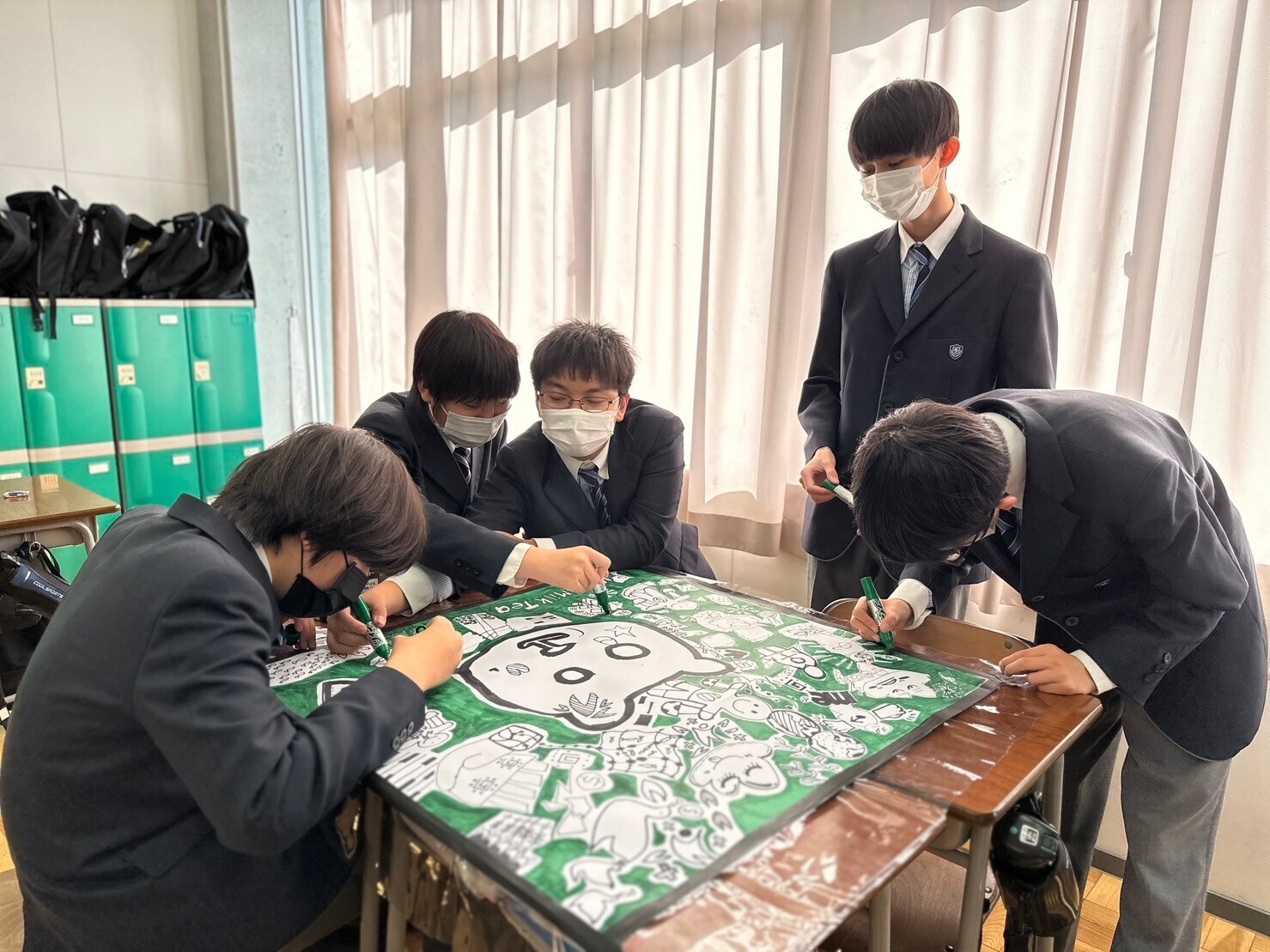
Join hands with students from Tsuda Academy to engage in the SDGs Drawing Activity.
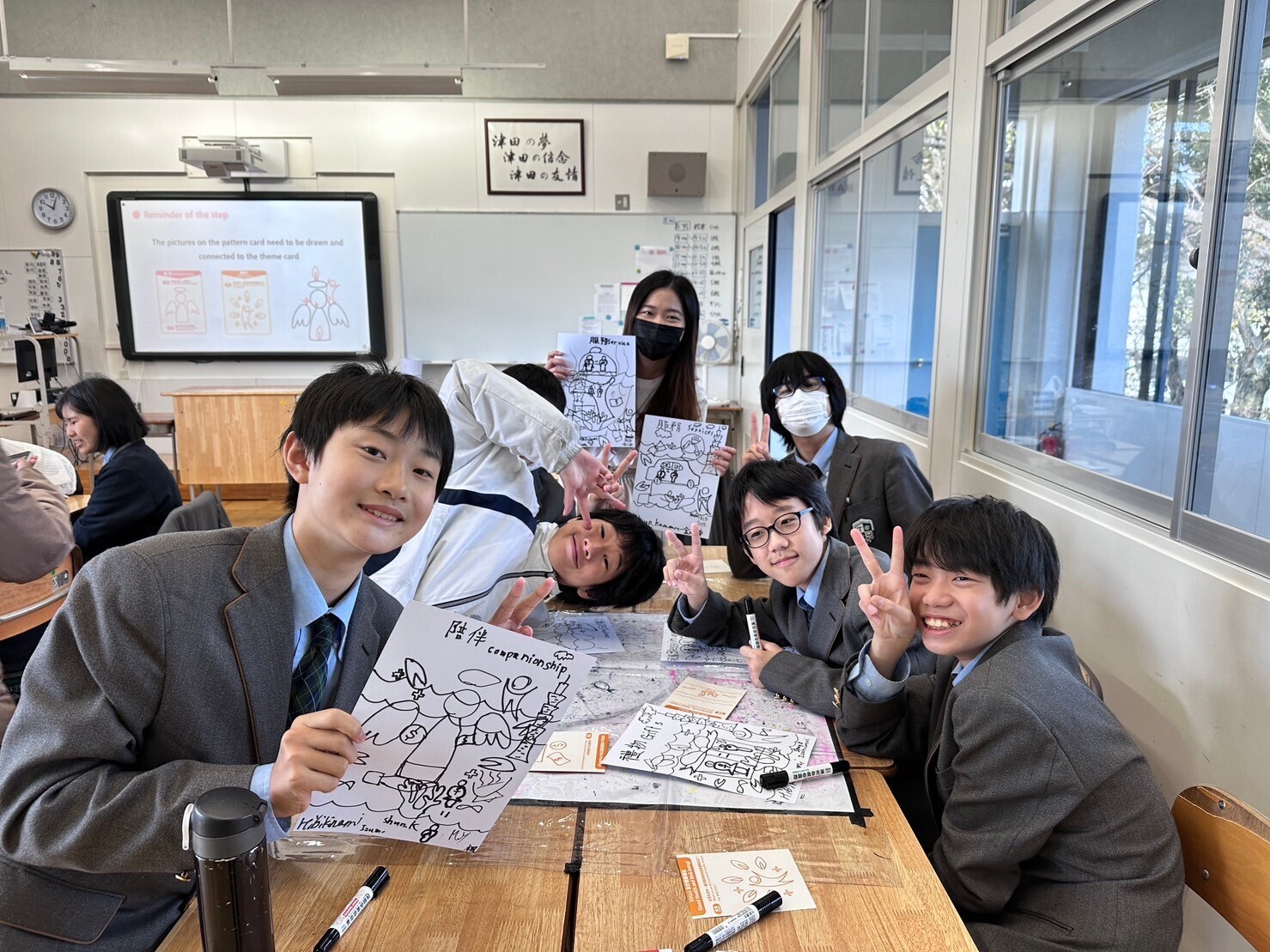
Joining hands with students from Tsuda Academy to engage in the SDGs Drawing Activity.
The team also brought the SDGs Drawing Activity to Tsuda Academy, where students collaborated in creating a collective artwork using "Love Language" to connect with each other. Using visual flashcards representing the 17 different SDGs goals, students drew together on a large piece of paper. Through communication and exchange during the collaborative drawing process, they explored issues related to sustainable development, discussed USR’s social responsibility practices, and enhanced their awareness of social responsibility.
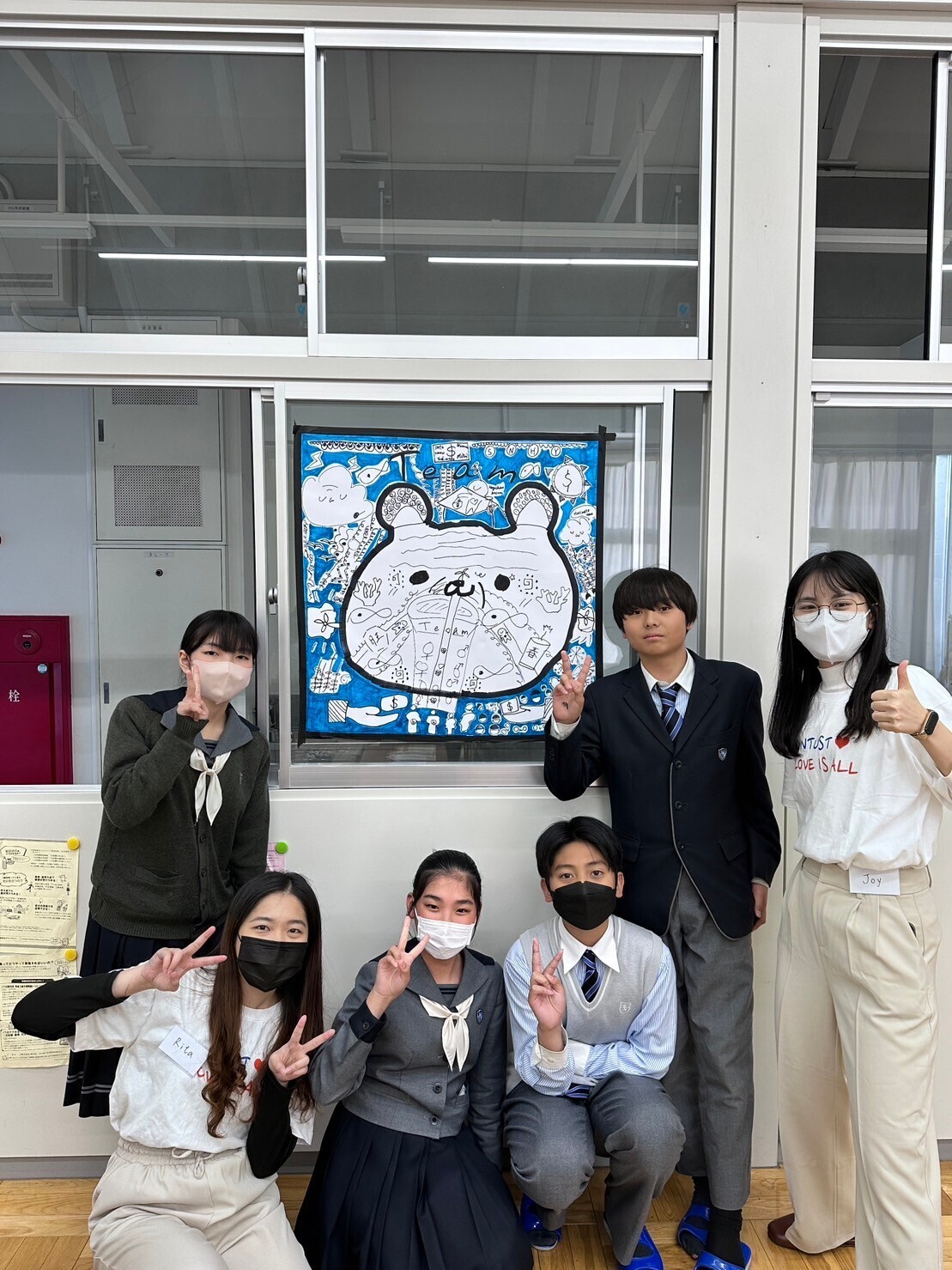
Taking a group photo with Tsuda Academy students and the SDGs collaborative artwork.
The team also made a special visit to the Mie Prefecture Council to gain insights into Japan's prefectural council system and to understand the current issues concerning domestic violence and children's rights, which are the most important in Japan. The President of the Prefecture Council, Hirofumi Nakamori, expressed that he liked Taiwan very much. Several cities in Japan and Taiwan have become sister cities because of the same place names and he hoped for frequent exchanges between them. He was delighted by the team's visit and looked forward to enhancing cooperation opportunities.
Professor Cathy Weng expressed that although the trip lasted for 14 days, it was still challenging to deeply understand Japan's educational culture and technological development. She hoped for more opportunities for exchange in the future and would continue to promote signing agreements with Mie Prefecture to become a USR site.
